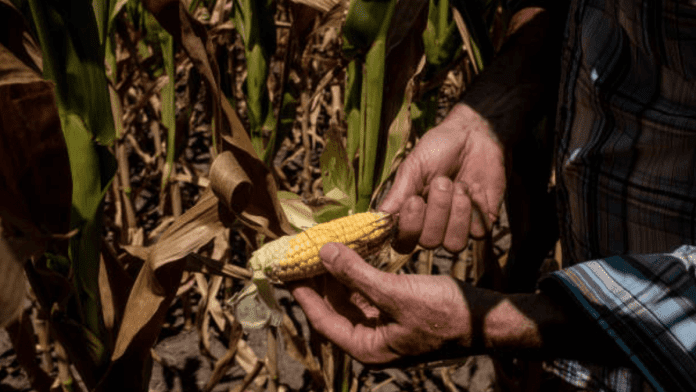News in Brief:
– Argentina’s corn industry faces uncertainty due to the emergence of corn stunt disease, jeopardising previously optimistic production forecasts.
– The disease, characterised by stunted ears and reduced yields, not only impacts local farmers but also has significant implications for global markets.
Recent findings in Argentina’s corn sector have ignited concerns as the discovery of corn stunt disease casts doubt on production projections. Expected to yield bountifully, the repercussions of this disease prompt a reevaluation of forecasts, sending ripples through both local farming communities and global markets.
Initial enthusiasm earlier this year painted a rosy picture for Argentina’s 2024 corn harvest. Fueled by favourable rainfall patterns linked to the El Niño weather pattern, the USDA foresaw record-breaking production levels of 56 million metric tons (MMT), marking a staggering 56% surge from the previous year. Correspondingly, export estimates soared to a projected 42 MMT, signaling a remarkable 66% increase from 2023.

However, recent developments have upended expectations. The emergence of corn stunt disease, exacerbated by mounting pressure from corn leafhoppers, grips producers in Central Argentina with apprehension.
While Brazil has grappled with this bacterial disease, its substantial impact on Argentina’s crops this season is unprecedented. Characterised by stunted ears and reduced weight, the disease poses a significant threat to yields. Complicating matters is the challenge of visually identifying infected fields from afar, hampering mitigation efforts and potentially resulting in losses ranging from 15% to 100%.
The intimate link between Argentina’s corn production and its export market compounds the dilemma. A decline in crop size directly translates to reduced export volumes. A minor 2 MMT reduction in crop size could trigger a substantial 34 mbu decrease in exports between March and August, as depicted in the graph correlating Argentina’s crop size with corn exports. Moreover, the timing of Brazil’s safrinha crop harvest further complicates the situation, with exports likely peaking in August.



